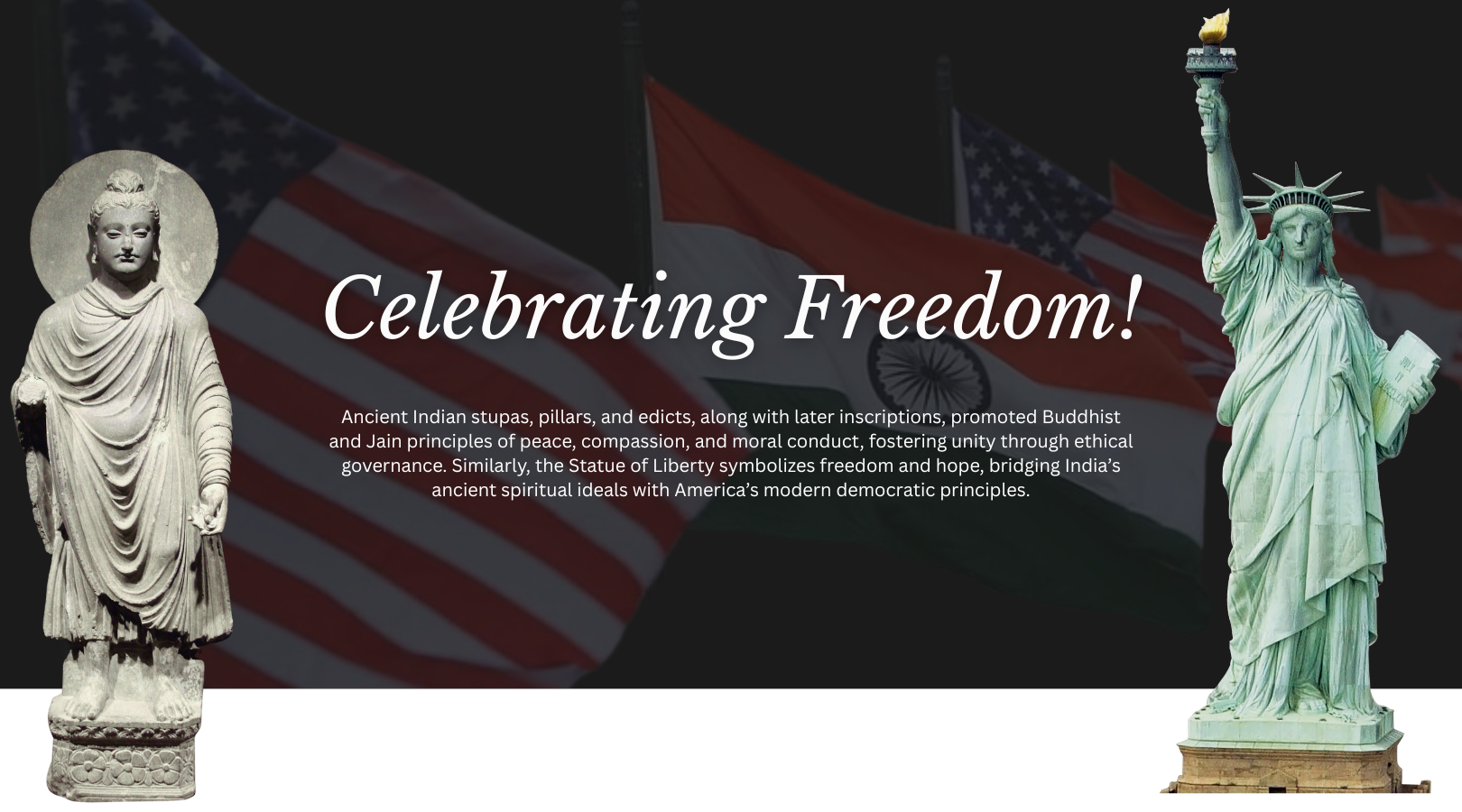
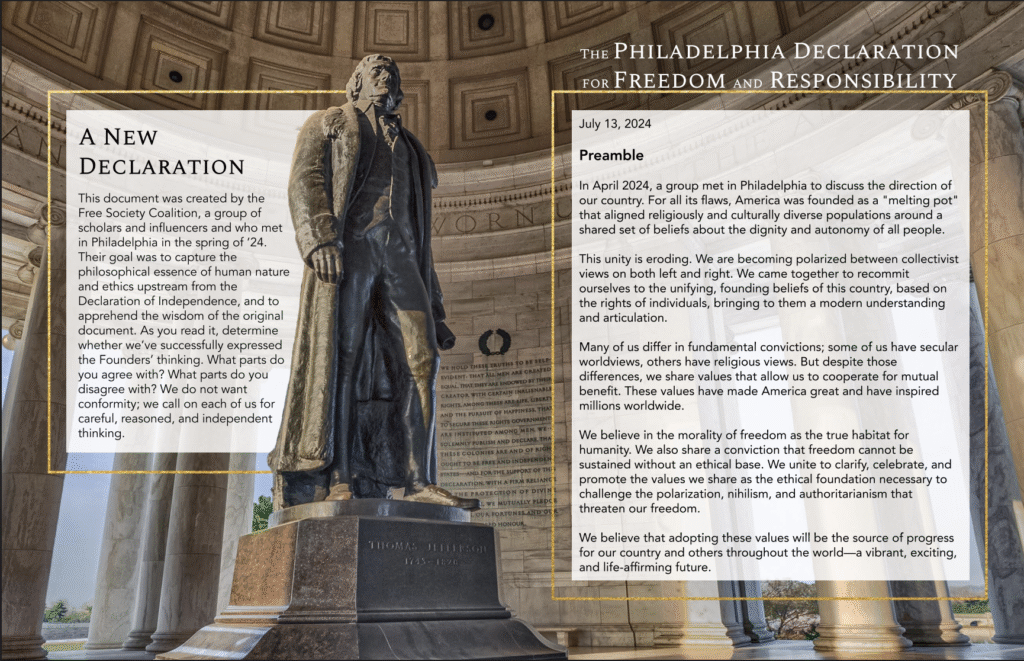
On July 4, 1776, the American Declaration of Independence proclaimed the colonies’ separation from British rule, asserting universal principles of liberty and self-governance that fueled revolutionary movements worldwide, inspiring nations to seek freedom, sovereignty, and republicanism. Just thirteen years later, France erupted in revolution (1789), overthrowing its monarchy and establishing the First French Republic in 1792, deeply influenced by American Enlightenment ideals. Haiti followed with a bold and unprecedented uprising in 1791, culminating in independence from France and the founding of the first Black republic in 1804. In Latin America, Venezuela declared independence in 1811 and became a republic by 1819, while Argentina broke free from Spanish rule in 1816, forming a republican government. Colombia joined the movement in 1810, formalizing its republican constitution by 1812. These nations, inspired by the American example, redefined governance across continents, replacing monarchies with republics rooted in popular sovereignty. The ripple effect of 1776 reshaped the political landscape of the modern world, laying the foundation for democratic revolutions to come.
India gained independence from British colonial rule on August 15, 1947, after a long struggle, with the First War of Independence typically referring to the Indian Rebellion of 1857. Decades earlier, the spirit of liberty and self-rule, exemplified by the American Declaration of Independence and other global movements, resonated profoundly, influencing India’s call for Purna Swaraj (complete independence). This vision of full liberation from British rule led the All India Congress Committee to authorize a nationwide civil disobedience movement and declare January 26, 1930, as Independence Day, a powerful assertion of sovereignty. The ideals of liberty and self-governance, shared across global struggles, not only shaped India’s freedom movement but also inspired liberation movements worldwide, contributing to the foundations of India’s democratic constitution and fueling global aspirations for self-determination.
India’s Constitution, the world’s longest at 146,385 words, was adopted on January 26, 1950, comprising 448 articles, 25 parts, and 12 schedules. This document has underpinned India’s strong democracy and self-determination, confounding early doubts. Considering India and the U.S.’s shared path to independence, their contrasting political systems and results invite deeper inquiry into the foundations of democratic success and the nature of progress.
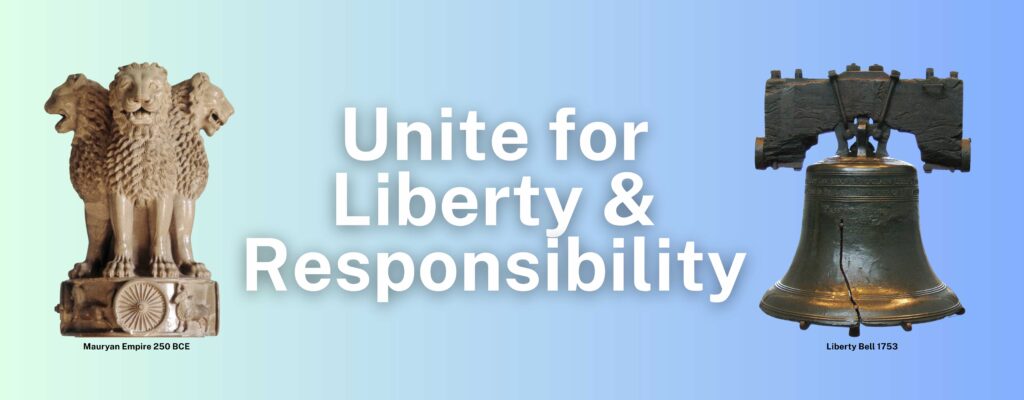
The Quest for India That Shaped a New World
In the late 15th century, European powers, driven by a desire for India’s and Asia’s spices, textiles, and thriving markets, launched bold maritime expeditions, as Ottoman control blocked land routes. Christopher Columbus and Amerigo Vespucci, seeking a western sea route to Asia, aimed to access these riches directly. Instead, Columbus landed in the Caribbean in 1492, mistaking it for the East Indies, and Vespucci later recognized these lands as a new continent, named America in 1507 by German cartographer Martin Waldseemüller on a world map. Meanwhile, Vasco da Gama reached Calicut, India, in 1498, establishing a direct sea route. These voyages, fueled by ambition, commerce, and curiosity, transformed global trade, migration, and cultural exchange, connecting continents and fostering the ideals of liberty that inspired the American Declaration of Independence. The 1670 settlement in South Carolina set the stage for the colonies’ break from British rule, achieved with the Declaration in 1776, 106 years later.
The Discovery of New Worlds
In 1492, Christopher Columbus, sponsored by Spain’s Catholic Monarchs, Ferdinand II of Aragon and Isabella I of Castile, sailed west seeking a direct route to Asia. Instead, he landed in the Caribbean, initiating European contact with the Americas. Around the same time, Amerigo Vespucci, an Italian explorer, sailed under Portuguese and Spanish patronage, exploring South America’s coast. His detailed accounts led to the continent being named after him, with German cartographer Martin Waldseemüller creating the first map to label the New World “America” in 1507. Concurrently, Vasco da Gama, backed by Portugal’s King Manuel I, reached Calicut, India, in 1498, establishing a direct maritime route. This breakthrough opened Asia to European trade, breaking Venice’s monopoly on spices and luxury goods.
These voyages were fueled by competition among European powers Spain, Portugal, and later England and France to secure wealth and influence. The 1494 Treaty of Tordesillas, brokered by Pope Alexander VI, divided the New World between Spain and Portugal, shaping colonial ambitions. The patrons, from monarchs to merchants, sought economic gain, but the consequences were far-reaching: global trade networks expanded, and European migration to the Americas began.
Consequences of Exploration
The discovery of the Americas and the sea route to India revolutionized global commerce. The Columbian Exchange introduced crops like maize and potatoes to Europe and horses and wheat to the Americas, transforming diets and economies. However, it also brought disease, decimating indigenous populations, and enabled the tragic transatlantic slave trade. The wealth from American gold and silver and Asian spices fueled European mercantilism, but it also sowed tensions. Colonists in the Americas, particularly in British North America, faced heavy taxation and trade restrictions to fund imperial ambitions, fostering resentment.
Vasco da Gama’s route to India shifted trade dynamics, making Portugal a dominant player in the Indian Ocean. This inspired other European nations to seek their own routes and colonies, intensifying global competition. The influx of wealth and ideas from these ventures enriched European intellectual life, sparking the Renaissance and later the Enlightenment. Concepts of individual rights, self-governance, and liberty—rooted in thinkers like John Locke—began to take hold, influencing colonial societies.
From Exploration to Independence
The European settlement of America, driven by explorers like Columbus and Vespucci, created diverse colonies with distinct identities. By the 18th century, American colonists, inspired by Enlightenment ideals and frustrated by British policies, began to envision a society built on liberty and personal responsibility. The trade networks established through voyages to India and Asia exposed colonists to global ideas of governance and commerce, reinforcing their desire for self-determination.
The American Declaration of Independence, adopted in 1776 in Philadelphia, echoed these principles. While not directly tied to India, the global context of its era—shaped by the interconnected trade and migration sparked by 15th-century voyages—provided a backdrop. The Declaration’s emphasis on individual rights and government by consent reflected the same spirit of exploration and self-reliance that drove da Gama, Columbus, and Vespucci.
The Free Society Coalition and Swatantrata Centre
The Free Society Coalition (FSC), inspired by the Declaration’s call for liberty and unity, promotes these values through its Philadelphia Declaration, aiming to bridge ideological divides as America nears its 250th anniversary in 2026. The FSC collaborates with organizations like the Cato Institute, Atlas Society, and Freedom Chamber to foster civil discourse and individual responsibility, echoing the Declaration’s spirit of uniting diverse voices for a common purpose.
The Swatantrata Centre, a libertarian think tank in India, is dedicated to advancing the principles of The Free Society Coalition. We champion economic freedom, limited government, and individual rights, drawing inspiration from India’s historic struggle for self-governance. Through rigorous research, policy advocacy, and public engagement, we promote free-market policies and personal responsibility to strengthen India’s democratic framework, ensuring the enduring legacy of liberty in one of the world’s largest democracies.
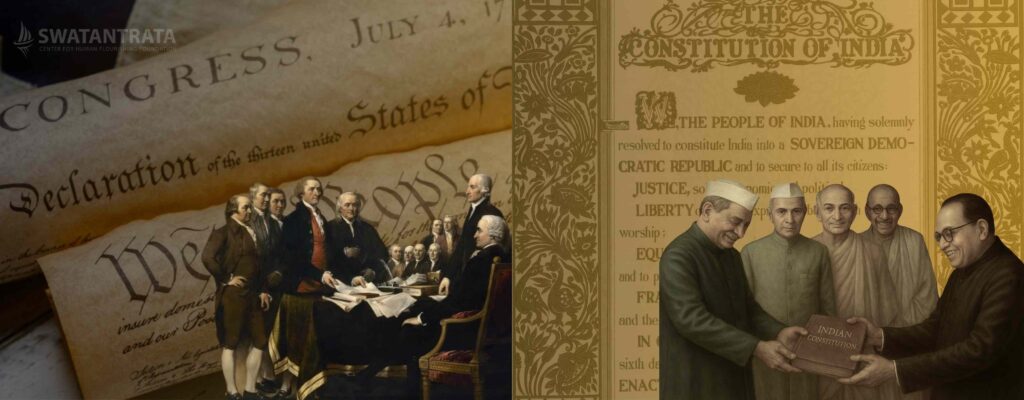
Indo-American Connections: Liberty’s Shared Legacy
The historical ties between India and America, rooted in shared ideals of liberty and self-determination, span centuries and continue to influence global democracy. Before India’s independence in 1947, direct connections were limited, but indirect influences were profound. American thinkers like Henry David Thoreau inspired Mahatma Gandhi’s philosophy of civil disobedience, with Gandhi acknowledging Thoreau’s essay “Civil Disobedience” as a key influence on nonviolent resistance. The American Declaration of Independence (1776) directly shaped the Indian National Congress’s (INC) Purna Swaraj Declaration (1930), which echoed its language on inalienable rights and listed British grievances, marking the INC’s demand for complete self-rule. As historian David Armitage notes, Purna Swaraj was the first anticolonial movement to deploy the American Declaration’s revolutionary rhetoric. Jawaharlal Nehru, India’s first Prime Minister, described the American constitutional experiment as a major inspiration for India’s nation-building.
During World War II, U.S. President Franklin D. Roosevelt actively urged British Prime Minister Winston Churchill to grant India independence (Atlantic Charter, August 14, 1941 ), viewing it as essential for Allied moral credibility. FDR’s advocacy stemmed from the 1941 Atlantic Charter, which promised self-determination for all peoples—principles he applied to colonies, despite Churchill’s fierce opposition that the charter did not extend to the British Empire. FDR pressed Churchill repeatedly, warning that delaying Indian freedom could alienate global support, but Churchill resisted, fearing imperial collapse. This U.S. pressure highlighted America’s indirect role in accelerating decolonization.
Post-1947, connections deepened through diplomatic, economic, and cultural exchanges. India’s Constitution (1950) borrowed extensively from the American model, incorporating fundamental rights (inspired by the Bill of Rights), federalism for power-sharing between center and states, judicial review empowering the Supreme Court to strike down unconstitutional laws, and elements of the presidency, though adapted to a parliamentary system. These features aimed to safeguard liberty and equality, reflecting American influences amid India’s unique context.
The INC’s independence efforts, from the 1885 founding to mass movements like Quit India (1942), drew ideological strength from America’s Declaration, emphasizing self-governance and rights. This inspiration fueled nonviolent campaigns that dismantled British rule, influencing global anticolonial struggles.
For the Free Society Coalition (FSC), these Indo-American bonds underscore our mission to unite for liberty and responsibility. As we approach America’s 250th anniversary in 2026, FSC’s Philadelphia Declaration echoes the shared ethics of 1776 and 1930, bridging divides through civil discourse. By highlighting how India’s freedom fighters adapted American ideals, FSC promotes a vibrant future where personal responsibility thrives across borders, fostering collaborations like those with the Atlas Society and Cato Institute to amplify global liberty.
From Philadelphia to Freedom: The American Who Joined India’s Independence
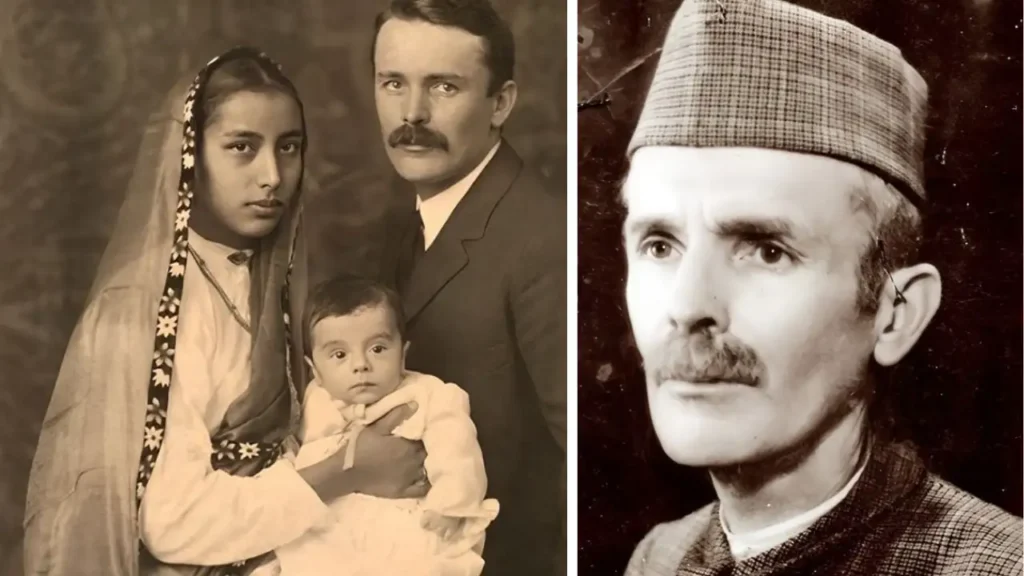
Samuel Stokes: Bridging India and AmericaSamuel Stokes, born in 1882 in Philadelphia, became a unique bridge between America and India through his devotion to India’s independence. Leaving a privileged Quaker life at 22, he arrived in India in 1904 to aid leprosy patients. Immersing himself in Indian culture, Stokes wore Khadi, learned Sanskrit and Pahari, and married Agnes, a Rajput Christian, raising their children as Indians. Joining Gandhi’s Non-Cooperation Movement, he opposed British forced labor and was imprisoned for six months for sedition, the only American jailed for India’s freedom. Stokes also introduced Louisiana apples to Himachal Pradesh, earning the nickname "Johnny Appleseed of the Himalayas." Though he died in 1947, his legacy in India’s freedom struggle and its apple orchards reflects a shared history of resilience and cultural connection between India and America.
.
.
..
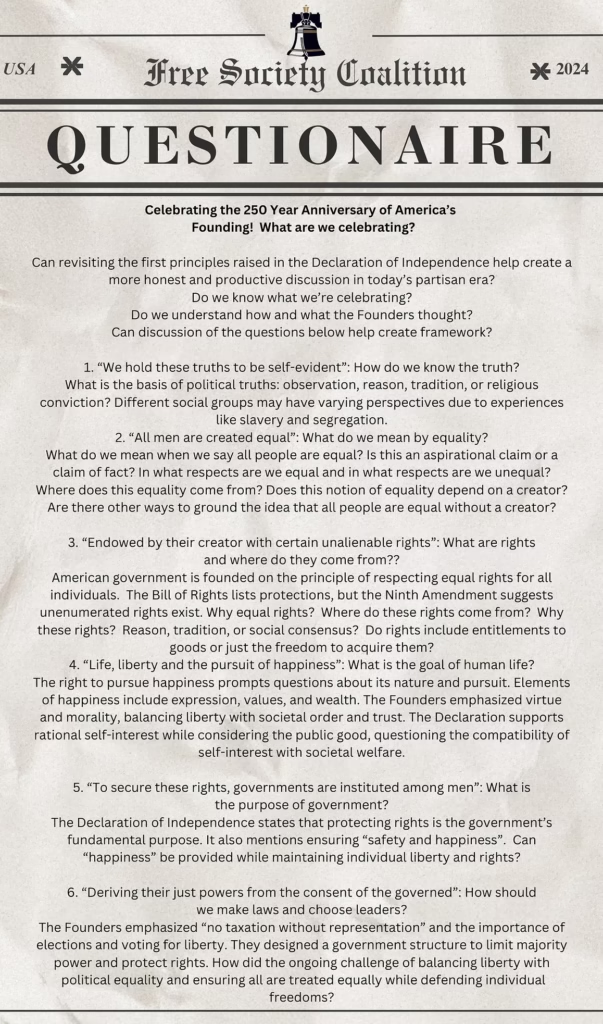
More coming heading into America's 250th Celebration
FSC, Swatantrata Indian events will be announced soon.
We unite to promote a vibrant, exciting, life-affirming future where liberty and personal responsibility thrive.
The Founders who wrote the Declaration of Independence exemplified civil discourse and unity of purpose despite their political and religious differences. Emulating their example, we at Free Society Coalition elevate our shared humanity and ethics above the differences to bridge the gap between ideas and action. We call on you to amplify our voices to unite to champion individual freedom, and responsibility.
It is in the spirit of America’s founding almost 250 years ago, that we have begun a more conscious effort, focusing on common ethics upstream of political issues, beginning with our own: Philadelphia Declaration. Want to join us in cutting through the chaos?
